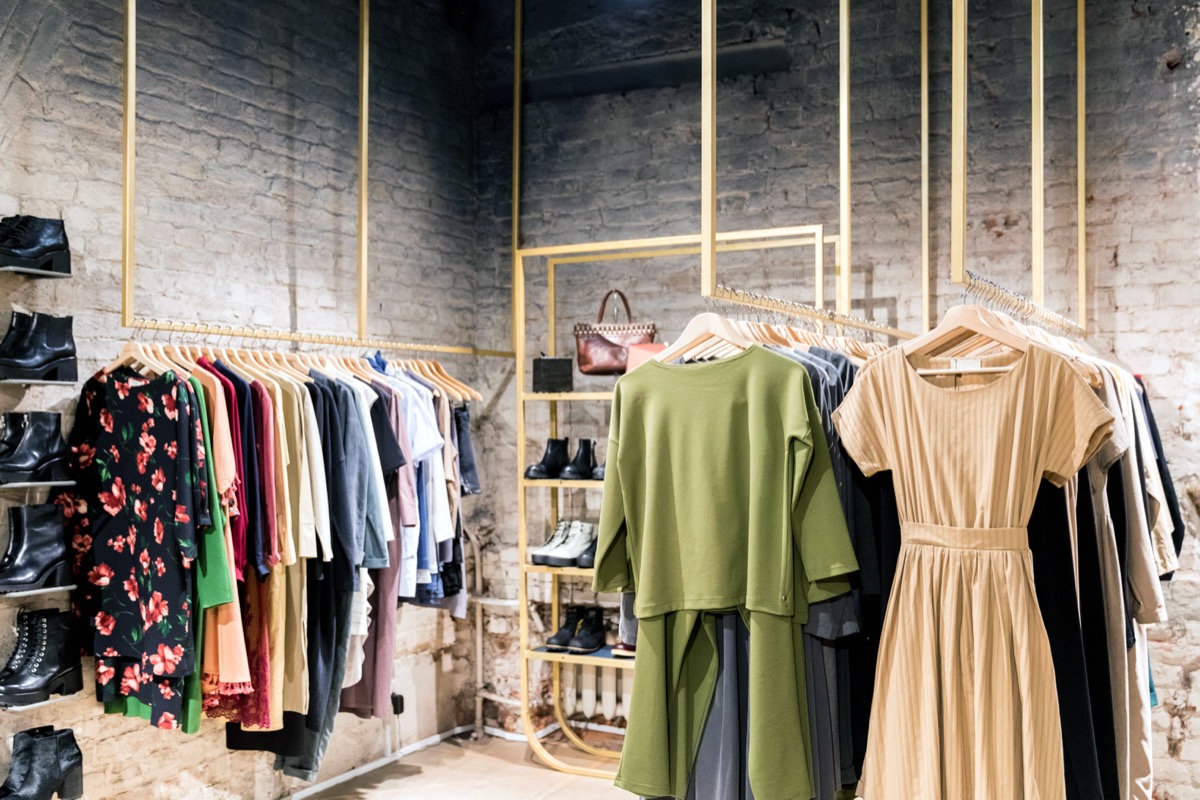8 Things You Should Stop Buying If You’re Middle Class, Financial Experts Say

The middle class may be shrinking, but it still represents the largest financial bracket in America. In fact, half the population is considered middle class, making between two-thirds and double the U.S. median household income. Though everyone’s experiences and finances are unique, some common trends are considered typical of this bracket.
“Middle class families tend to own their own home (although with a mortgage), own a car (although with a loan or lease), send their kids to college (although with student loans or scholarships), are saving for retirement, and have enough disposable savings to afford certain luxuries like dining out and vacations,” explains Investopedia.
Of course, not all purchases are necessarily good investments—and for any middle-class person who prizes upward mobility, it’s important to make careful financial decisions. This is why we consulted financial experts to learn which eight things you should stop buying if you’re middle class.
RELATED: 10 Things You Should Stop Buying When You Retire, Finance Experts Say.
1
A bigger house than you can afford.

To many people, there’s nothing more symbolic of the American dream than home ownership. However, several of the experts we spoke to cautioned against buying more house than you can realistically afford.
“While home ownership is a significant financial goal, middle-class individuals should be cautious about overextending themselves to purchase a home beyond their means,” says Artem Minaev, a senior investment advisor and co-founder of CryptoDose. “Overspending on a home can lead to financial stress and limit the ability to invest in other assets. A more affordable home can provide financial flexibility for savings and investments.”
2
New or luxury cars

When it comes time to buy a car, middle-class individuals should balance their needs and wants with more practical considerations. Remember—just because you can get a loan for a more expensive car doesn’t mean that you should.
“Those luxury cars may look great, but they’re a big hit on your wallet,” says Rob Whaley, a finance specialist with Horizon Finance Group. “They lose value fast, and you’re better off with reliable wheels that won’t break the bank.”
Jonathan Merry, a personal finance expert with Moneyzine, says that instead of driving a new car off the lot, you’d be better off buying a high-quality, used car that’s roughly three years old. “At that age, the first owner has dealt with the biggest price drop or depreciation bulk, saving you money,” he tells Best Life.
RELATED: 24 Smart Shopping Habits That Will Save You Loads of Money in the Long Run.
3
Extended warranties

Usually, when you buy a gadget or product, you’re offered an extended warranty. More often than not, you should turn this down.
“I have seen that many middle-class people purchase extended warranties for various products, thinking they provide extra protection. However, these warranties often come with hefty price tags and are not cost-effective,” says Minaev. “Most products are designed to last beyond the warranty period, and the money spent on extended warranties could be better invested or used for an emergency fund.”
To ensure that you’re not stranded if something does break, set aside a certain amount of money for a generalized “fix-it fund,” rather than protecting one product in particular.
4
Luxury clothing and accessories

Luxury clothing items and accessories can also drain your bank account without much to show for it.
“Brand-name clothes might seem cool, but they’re not an investment. Quality stuff without the flashy logos is just as good, and won’t wreck your budget,” says Whaley.
These days, even upper-class folks are opting for more discreet, “stealth wealth” looks over flashy, brand-name apparel. You’ll fit right in sporting a purse from Cuyana, Lo & Sons, or other mid-range brands that offer high style without the shock to your wallet.
RELATED: Never Use Your Debit Card for These 6 Purchases, According to Financial Experts.
5
Unused subscriptions and memberships

While there’s no need to cancel any subscriptions that genuinely bring you joy, it can pay to review your commitments and unsubscribe from anything you don’t use.
“Middle-class individuals often subscribe to various services, such as streaming platforms, gym memberships, or magazine subscriptions, which they do not fully utilize. Reviewing these expenses and canceling those not regularly used can free up funds for more meaningful financial pursuits,” advises Minaev.
6
Anything you can’t pay off in a month

Living a middle-class lifestyle means you should be able to enjoy splurging every once in a while. But a good rule of thumb is that you should avoid putting anything on a credit card that you can’t pay off in a month.
“High-interest debt, like credit card balances, is like quicksand for your finances,” explains Whaley. “You end up paying a ton in interest and can get stuck in a never-ending cycle of debt. It’s smarter to pay off those debts and put that cash into savings or investments.”
Instead, try to balance manageable purchases that enhance your quality of life now with longer-term financial goals, like saving, investing, and paying down debt.
RELATED: 5 Ways Your Credit Card Is Ruining Your Finances.
7
Expensive tech and gadgets

Getting your hands on the newest tech release can be exciting, but it can be an expensive habit to always look for an upgrade.
“A lot of middle-class people think buying the newest tech every year is smart. It’s not,” says Merry. “The difference between old and new models isn’t always big, and the high price isn’t always worth it. Chasing the latest tech can waste money that could be used better elsewhere.”
Instead, think carefully about which features you actually need, and get the lowest-priced gadget that includes those features.
8
Excessive dining out

Sometimes, the little luxuries in life can mean a lot—for instance, spending quality time with friends or family at your favorite neighborhood haunt. However, there’s a difference between enjoying a special night out and relying on restaurants for most meals.
“Dining at fancy restaurants frequently can put a serious dent in your finances,” says Keith Donovan, a startup advisor and founder of Startup Stumbles. “Cooking at home can save a significant amount in the long run and still offer delightful meals.”
For more money tips sent directly to your inbox, sign up for our daily newsletter.
Best Life offers the most up-to-date financial information from top experts and the latest news and research, but our content is not meant to be a substitute for professional guidance. When it comes to the money you’re spending, saving, or investing, always consult your financial advisor directly.